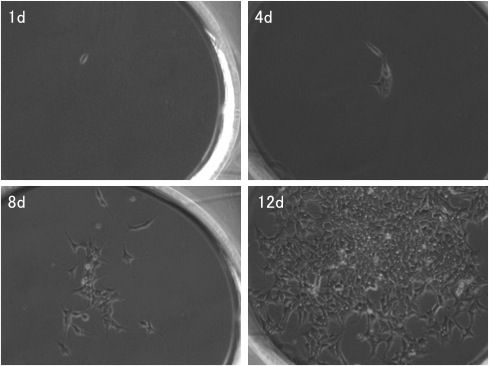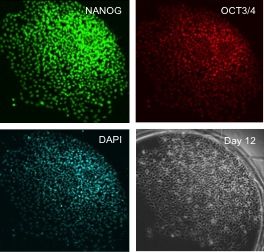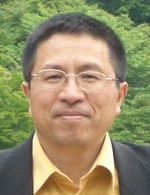To develop a system for sorting and culturing single human iPS cells.
Project Gist
To develop a system for sorting and culturing single human iPS cells.
Keywords
Single cell culture, human iPS cell
Background, Purpose, and Project Achievements
Human induced pluripotent stem cells (hiPSCs) hold great potential for applications in fundamental research and clinical use, such as cell-based therapies, tissue engineering, disease modeling and drug discovery/screening. However, there still remain some problems for the reprogramming of iPSCs, such as tumorigenic uncertainly due to mixture of good and bad cells. For medical applications, clinical-grade iPSCs must be produced in a defined and controllable manner. Thus, cell quality control will pay a necessary and challenging role. Integrated Nano- /Micro-engineered technology, we develop a single iPS cell sorting and culture system. This system is suited for long-term expansion of hiPSCs under feeder- and serum-free culture conditions. After 20 passages, Cells still maintains its pluripotency without introducing any abnormal chromosome.
Future Prospects
In this project, we proposed a simple system for single cell culture of hiPSCs. Our results show that those clones can effectively keep their pluripotency as well as their capability of self-renewal. However, gene expression analysis have shown that some genes could have different expression levels among different clones, indicating that the individual cells may have different characters even in a same colony. In the future, more investigation are necessary for understanding how individual hiPSCs would have different self-renewal or differentiation properties.
Figures


Principal Investigator

・CHEN, Yong
・Institute for Integrated Cell-Material Sciences (iCeMS)
・Yong CHEN received his B.S. degree from Wuhan University in China, M.S. and Ph.D. degrees from University of Montpellier in France in 1982, 1983 and 1986, respectively. He then spent three years at Peking University in China and Scuola Normale Superiore di Pisa in Italy as post-doc or research associate. Next, he joint the Centre National de Recherche Scientifique (CNRS) in 1990 and he is now a Principal Investigator of iCeMS and a Research Director of CNRS at the Ecole Normale Supérieure of Paris. He has authored or co-authored 400 scientific papers and contributed to more than 10 European research projects.
・http://www.chen.icems.kyoto-u.ac.jp
